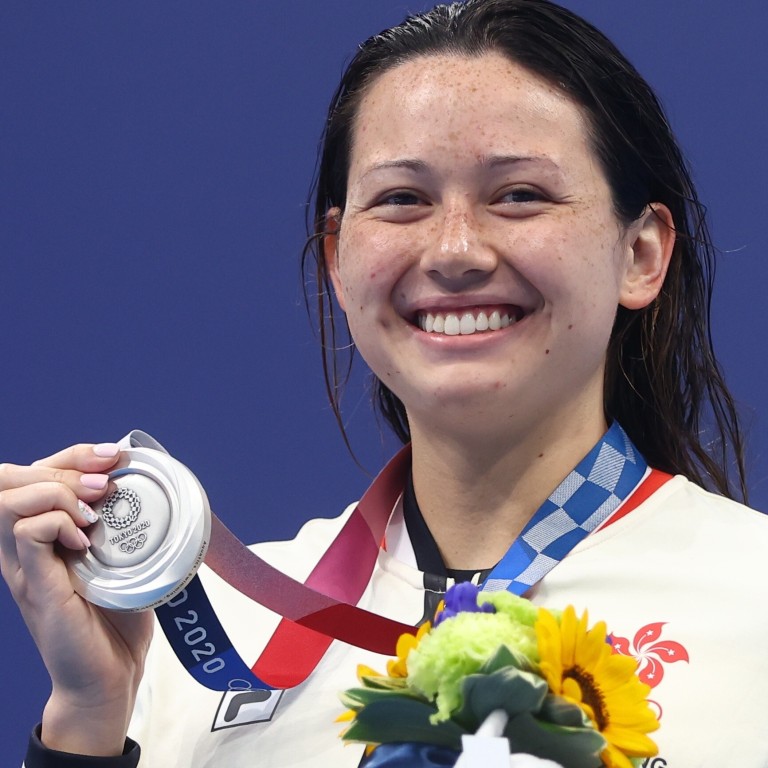
Tokyo Olympics: Siobhan Haughey delivers silver lining to Hong Kong sport, giving city its best-ever showing at Games
- The 23-year-old swimmer strikes silver in the pool, a day after Edgar Cheung wins a historic gold medal in fencing
- ‘We hope with the success in Tokyo, we can strengthen our programmes,’ says Sports Institute’s Tony Choi
Siobhan Haughey grabbed a historic silver medal in the pool in Tokyo on Wednesday, guaranteeing this Olympics is Hong Kong’s most successful ever – and one sports chief said it showed the investment made over the past two decades was reaping its reward.
The city has pumped billions of dollars into its Sports Institute, which Tony Choi Yuk-kwan, the deputy executive director, described as being pivotal in “helping athletes achieve better results at international level”.
In return for those billions, Edgar Cheung Ka-long and Haughey have brought back gold and silver, and a significant measure of civic pride.

Chief Executive Carrie Lam Cheng Yuet-ngor praised her “brilliant performance”, and hailed the “historic breakthroughs” made in fencing and swimming.
“She [Haughey] performed brilliantly and won the glory for Hong Kong with her spirit,” Lam said. “I and the people in Hong Kong feel very proud.”
Tokyo Olympics: Haughey's sensational day in the pool – as it happened
But Choi said to maintain that success going forward would require an increase in support and funds.
“We hope with the success in Tokyo this time, we can strengthen our programmes, especially in sports science and sports medicine support, such as designated medical officers and physiotherapists to each team,” he said. “But this requires more funding from the government, and we will have to sort this out with them if we want to bring in more results in the future.”
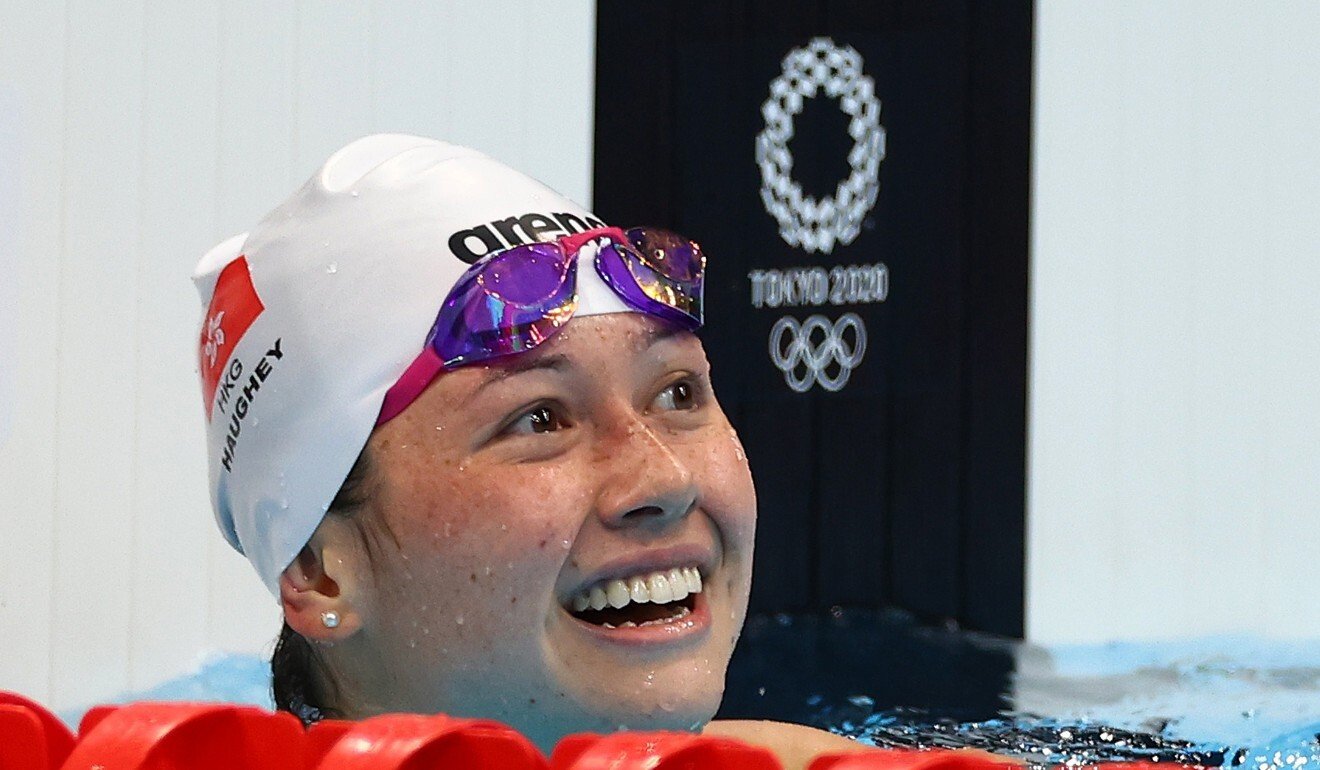
Congratulating Haughey after her performance, Financial Secretary Paul Chan Mo-po urged the swimmer, whose nickname is “Little Fish”, and her teammates on, and said “to all our athletes, let’s keep going, we will show our fullest support”.
After setting a new Asian record in her medal-winning performance in the 200m freestyle, Haughey, who receives an elite athlete grant, said she hoped the government backing would continue, and added she could not have achieved what she did without the help of “my coaches in Hong Kong”.
“I receive a lot of support from the SI and the Hong Kong coaches. It’s been a special year since I came back to train in Hong Kong and they’ve been showing me great support and anything I need, in terms of training, they try their best to provide.
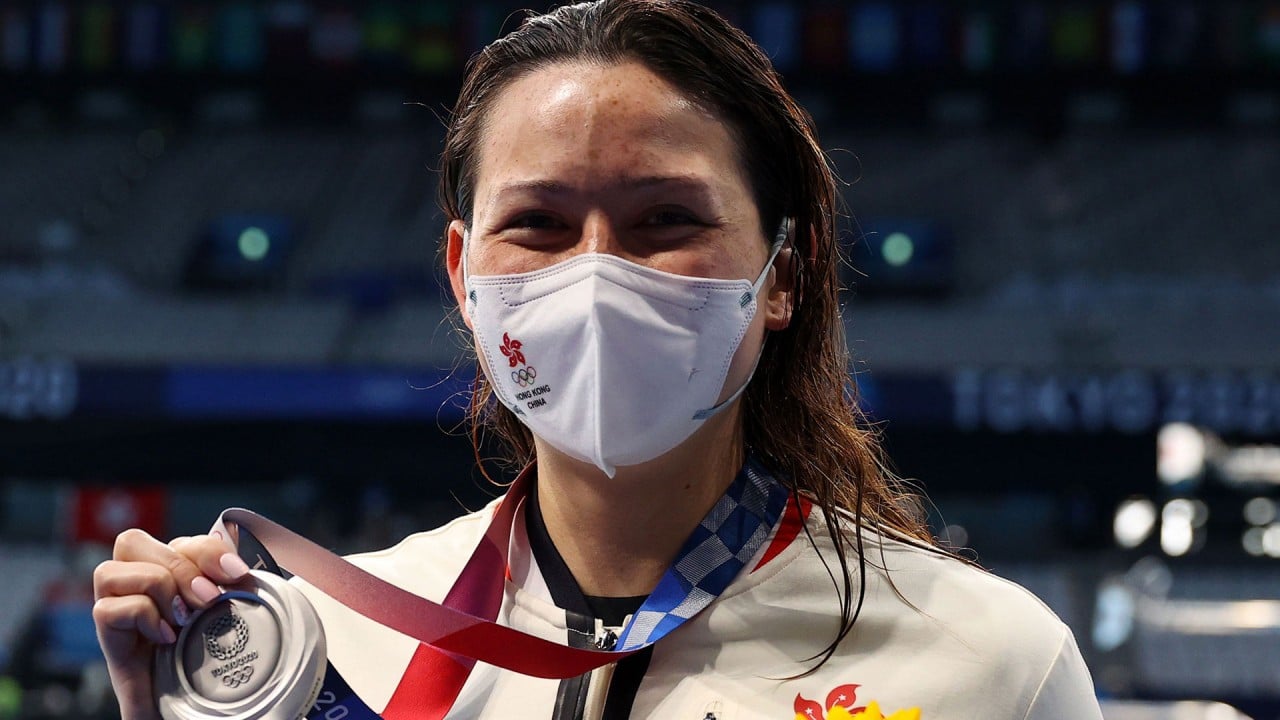
05:25
Hong Kong’s most successful Olympics ever as swimmer Siobhan Haughey wins silver at Tokyo 2020
“I hope others can continue to support Hong Kong athletes,” she said. “Maybe you can only see us for a few minutes in competition, or if we’re lucky, we can have that glorious moment on the medal podium, but we have spent a lot of time on hard training to reach here.”
‘Hard work has paid off,’ says Haughey after Tokyo silver
Hong Kong’s elite training centre in Fo Tan now has an annual budget of HK$700 million, and caters to 20 tier A sports, not all of which are Olympic events, with squash, wushu, and tenpin bowling also included.
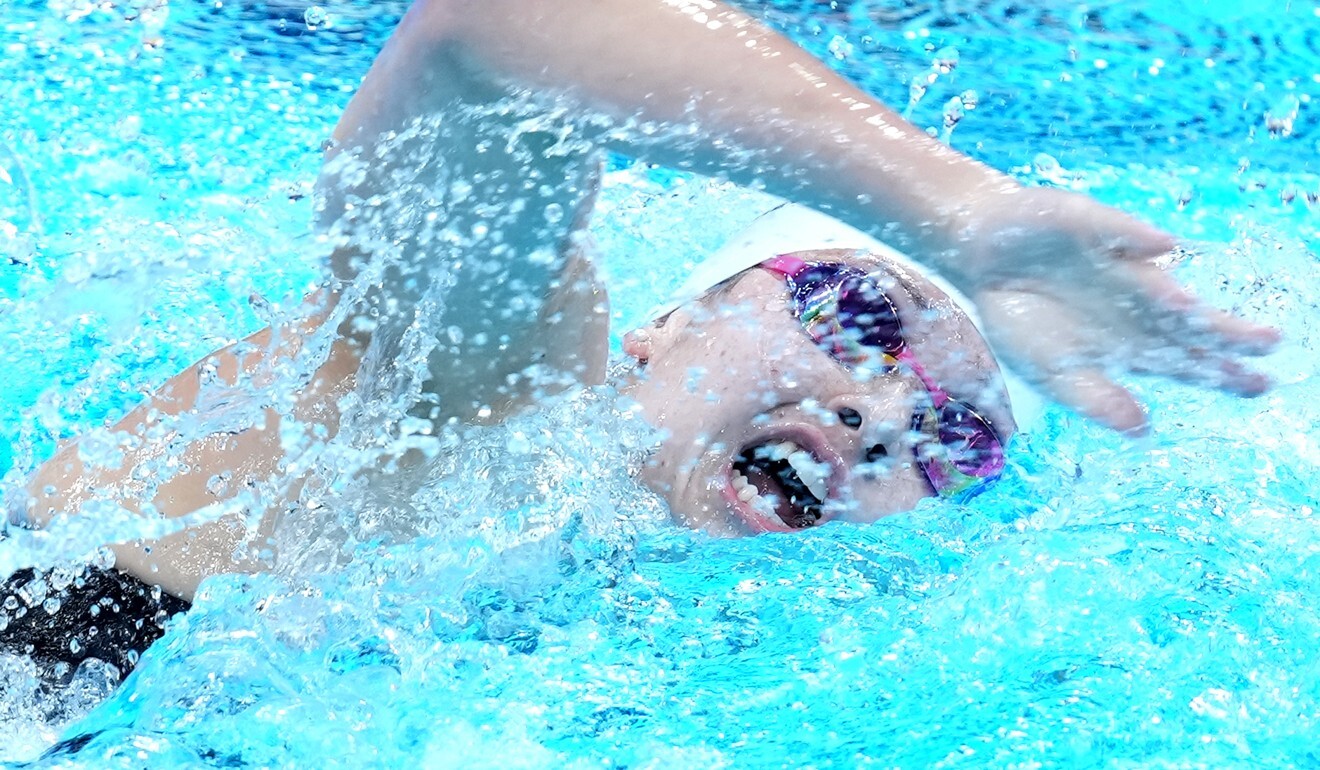
“We have spent a lot more recently on coaching, training programmes and sports science and sports medicine support to enhance athletes’ performance,” Choi said.
“Of course, timing plays an important role. The two Olympic medallists are mature enough to earn them good results in Tokyo as five years ago when they made their Olympic debut in Rio, they did not achieve anything.
“After getting more international exposure over these years, they have improved and earned themselves a top spot among the best in the world.”
Who is Hong Kong Olympic silver medallist Siobhan Haughey?
Hong Kong’s best have been able to train at the Fo Tan complex in a bubble, while the sporting world has been interrupted by the coronavirus pandemic, from training to international competitions.
“The centre has not stopped its operation under the pandemic,” Choi said. “We continue to provide the best training facilities to our athletes and even open the centre to them during the Chinese New Year.
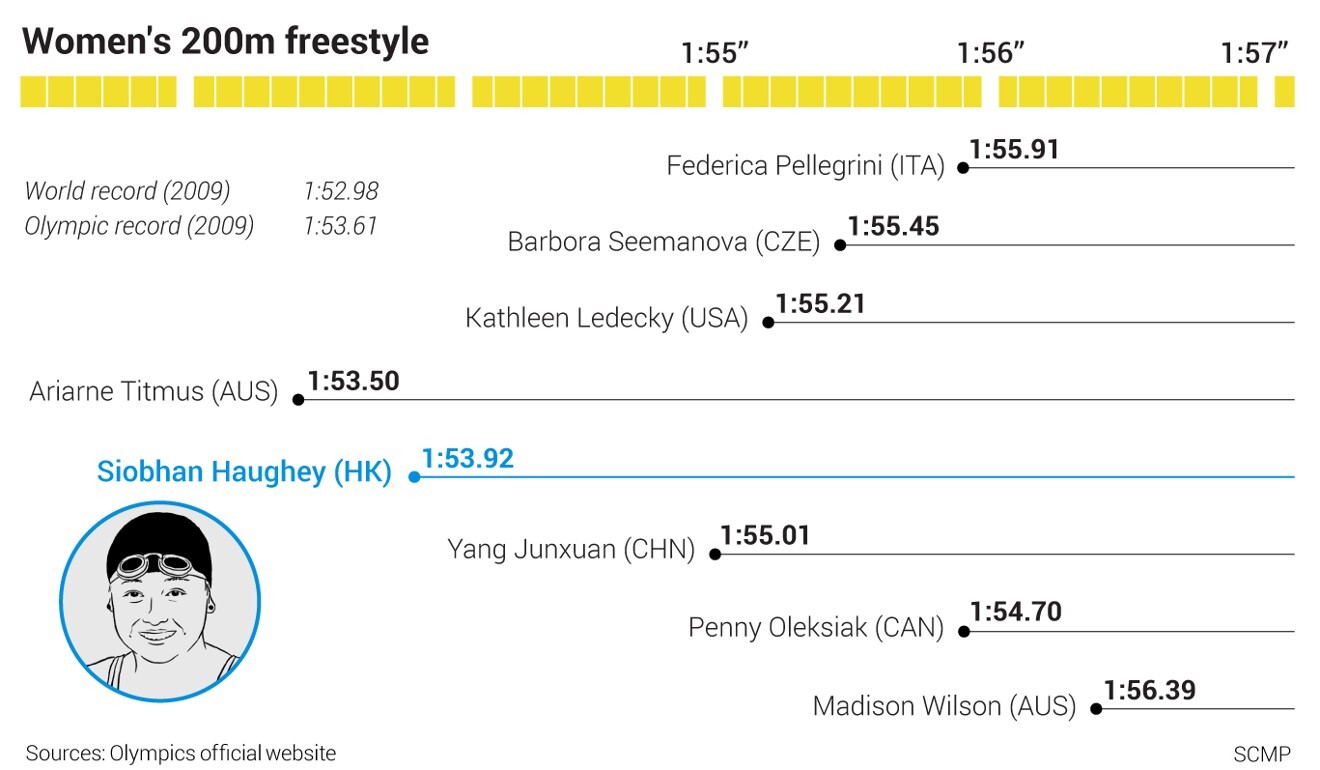
The likes of Haughey, Cheung, and other Olympians benefit from the elite training grant that provides a maximum of HK$48,000 to athletes on a monthly basis, while in terms of a career after sports, the city’s sportsmen and women receive educational support to pave their way to enter university.
When they retire, they can receive a maximum HK$1 million under a recognition scheme, while their major games incentive scheme, which is backed by Henderson Land, also provides a HK$5 million reward for a gold medal, HK$2.5 million for silver and HK$1.25 million for bronze at the Olympics.
“I won’t say athletes work hard only because of these incentives but it will definitely give them a more secure career so that they can focus on their training,” Choi said.
Who is Hong Kong Olympic gold medallist Cheung Ka-long?
Haughey was only overhauled in the final 10 metres by Australia’s Ariarne Titmus, and the Hong Kong swimmer said she had “worked hard for this for the last five years” after reaching the semi-finals in Rio de Janeiro five years ago.
“My achievement, coupled with Cheung Ka-long in fencing, can inspire other Hong Kong athletes who are here in Tokyo and add oil to them, and to those swimmers back home – continue to train hard so that you will be the next.”
Her success has already inspired some of the next generation, and 13-year-old Wilson Chan, who swims at the same South China Athletics Association pool where Haughey started, said watching her made him think anything was possible.
“There is a chance [to be an Olympian], and this is our goal too,” he said.

